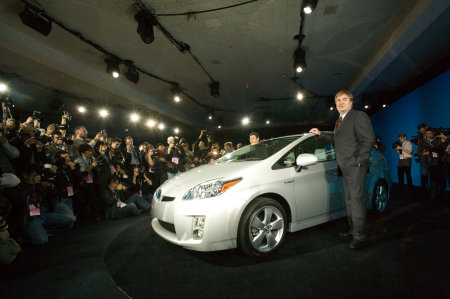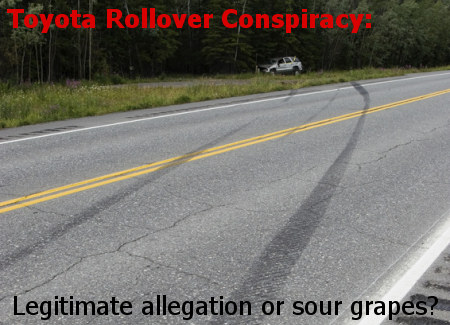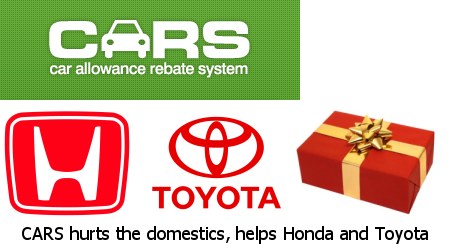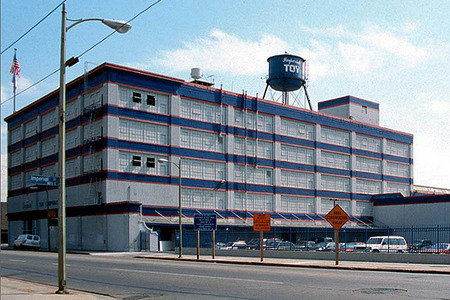
 Author Archive for Jason Lancaster
Author Archive for Jason Lancaster
Jason Lancaster is the editor and founder of TundraHeadquarters.com. He has nearly a decade of experience on the retail side of the auto industry, and another decade of experience of the part and accessory side of the industry.
Did California’s Excessive Regulations and Taxes Kill NUMMI?
The closure of NUMMI signifies a new era for California – for the first time in 95 years, California will not host a vehicle production plant for a major auto manufacturer. When NUMMI closes in March, 2010, California’s only notable auto plant will make only a few thousand Tesla all-electric roadsters per year.
California’s first auto plant was Ford Motor Company’s Los Angeles assembly plant, opened in 1914. Ford opened another plant in Long Beach in 1930, which operated until 1959. Ford’s last plant in California was the “Pico Rivera” plant, which was closed in 1981. General Motors has also had a presence in California for the better part of 73 years. The South Gate plant, opened all the way back in 1936, was likely GM’s first California plant. The last GM car made in California (the Pontiac Vibe) rolled off the NUMMI assembly line just a few weeks ago.
The question: Is California the problem?
New 2010 Toyota Prius In High Demand
We got a lot of guff for stating that the Toyota Tundra was in high demand last week, so let’s be clear this time when we say “high demand.” Toyota can sell the new 2010 Toyota Prius as fast as they can make them. That’s called “demand” – we think this demand is “high” because most Toyota dealers have few or no Prius in stock.

Toyota is selling as many Prius as they build - we think that's called "high demand."
This is the same rationale that we used to state that Tundra demand was high…hopefully it won’t be confusing this time. Check out the stories below:
Toyota Racketeering Lawsuit Filed By Former Toyota Attorney
Dimitrious P. Biller, former managing counsel for Toyota’s National Rollover Program, has filed a lawsuit against Toyota alleging a conspiracy to hide evidence in numerous roll-over lawsuits. Specifically, Biller alleges that Toyota withheld data regarding vehicle roof strength in a series of lawsuits he oversaw between 2003 and 2007. This conspiracy, if proven to be legitimate, would fall under the general category of “racketeering.”
Story Update December 2009
When Biller made his claims earlier this year, many attorneys asked to re-open previous rollover lawsuits against Toyota. However, after reviewing Biller’s conspiracy evidence, an independent attorney in Texas decided not to re-open 17 rollover cases he had previously pursued.
According to Texas attorney E. Todd Tracy, who represents victims in 17 Toyota rollover cases, “It’s my belief, after reviewing these documents, that the evidence [presented by Biller] will not assist my suits…I’m disappointed beyond belief.” (link)
This information seems to support the conclusion that Biller’s lawsuit against Toyota is frivolous.
Original Story Continued…
Biller, a former Toyota employee, has an interesting past. In addition to helping Toyota successfully litigate a dozen rollover lawsuits, Biller also represented Ford Motor Company in a series of product liability lawsuits in the early-to-mid 90’s. According to his website, Biller is an experienced attorney in the realm of product liability who has made a living representing big companies.

Former Toyota attorney Biller alleges a Toyota conspiracy to hide vehicle roof data
“Buy American Trucks” – Hypocrisy At It’s Finest
We’ve all heard someone say that you shouldn’t buy a Toyota because “all the profits go to Japan.” Talk about hypocrisy. People think it’s wrong to support a global car company that’s spent $20 billion building plants in the USA over the last 20 years, yet they willingly fork over their dollars to bankrupt GM and Chrysler so they can “buy American.”
Here’s a newsflash for all you “buy American” hypocrites: Toyota’s profits on one truck sale pale in comparison to the amount of money YOU send overseas every year. The fact is, we’re all sending thousands of dollars a year in profits to foreign companies – regardless of the type of vehicle in the driveway. Take a look:
Cash For Clunkers A Gift For Honda and Toyota
When the “Cash for Clunkers” program (a.k.a. CARS) was signed into law 2 months ago, there were a lot of different advantages pitched at the American taxpayer:
- CARS will help the environment by getting rid of polluting old vehicles
- CARS will help the economy
- CARS will help the auto industry
- CARS will help the domestic automakers earn a profit
While we can’t speak to the environmental, economic, or overall auto industry benefits, we CAN speak to the idea that the CARS program helped domestic automakers: For 3 out of 3 domestic manufacturers, the answer is NO.

According to a recent report from IBISWorld, an independent company that analyzes the auto industry, the domestic manufacturers took less than there fair share of the cash for clunkers dollars.
Here’s the data:


